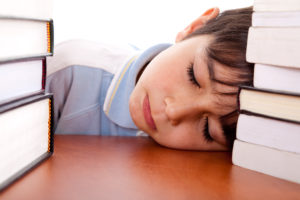By Annette Pinder
Insomnia, or trouble falling asleep or staying asleep, is usually considered an adult problem. However, Daniel I. Rifkin, M.D., founder and director of Sleep Medicine Centers of WNY, is seeing more and more young people who suffer from insomnia. He is also seeing how insomnia can affect an entire family.
Children who aren’t getting enough sleep often feel tired, irritable, and even find it difficult to stay awake at school. “As with adults, factors that contribute to childhood insomnia can include stress, which then manifests itself as worry or an overactive mind at night,” says Dr. Rifkin, adding that “depression, anxiety, pain, and other medical problems can also be a catalyst for insomnia.”
Although there are common insomnia medications available for adults, they are not approved for children. However, there are steps parents can take. Dr. Rifkin recommends adopting a solid bedtime routine, including consistent bedtimes and wake times in order to help combat child insomnia. He says, “Keeping electronics, like televisions, computers and cell phones out of the bedroom is also important.”
Children and teens often have significant stressors that can contribute to sleeplessness and anxiety, so addressing these stressors is an important first step toward alleviating them. In some instances, a pediatrician or sleep medicine specialist may be needed to help a child work through sleep-related issues.
Dr. Rifkin is currently working on a program called Shut it Down to educate teens and their parents about the dangers of poor sleep hygiene. To learn more or to make an appointment with Dr. Rifkin call 716-92-DREAM.
About the Author:
Daniel I. Rifkin, M.D. is Director and Founder of Sleep Medicine Centers of WNY. He is at the forefront in treating obstructive sleep apnea in adults and children, insomnia, narcolepsy, restless legs syndrome, upper airway resistance syndrome, delayed sleep phase syndrome, shift work disorder, and pediatric sleep disorders. Sleep Medicine Centers has offices in Amherst, Dunkirk, Kenmore-Tonawanda, Lockport, West Seneca, Women and Children’s Hospital of Buffalo, and at the Innovation Center in Buffalo. Learn more at www.sleepmedicinecenters.com.











